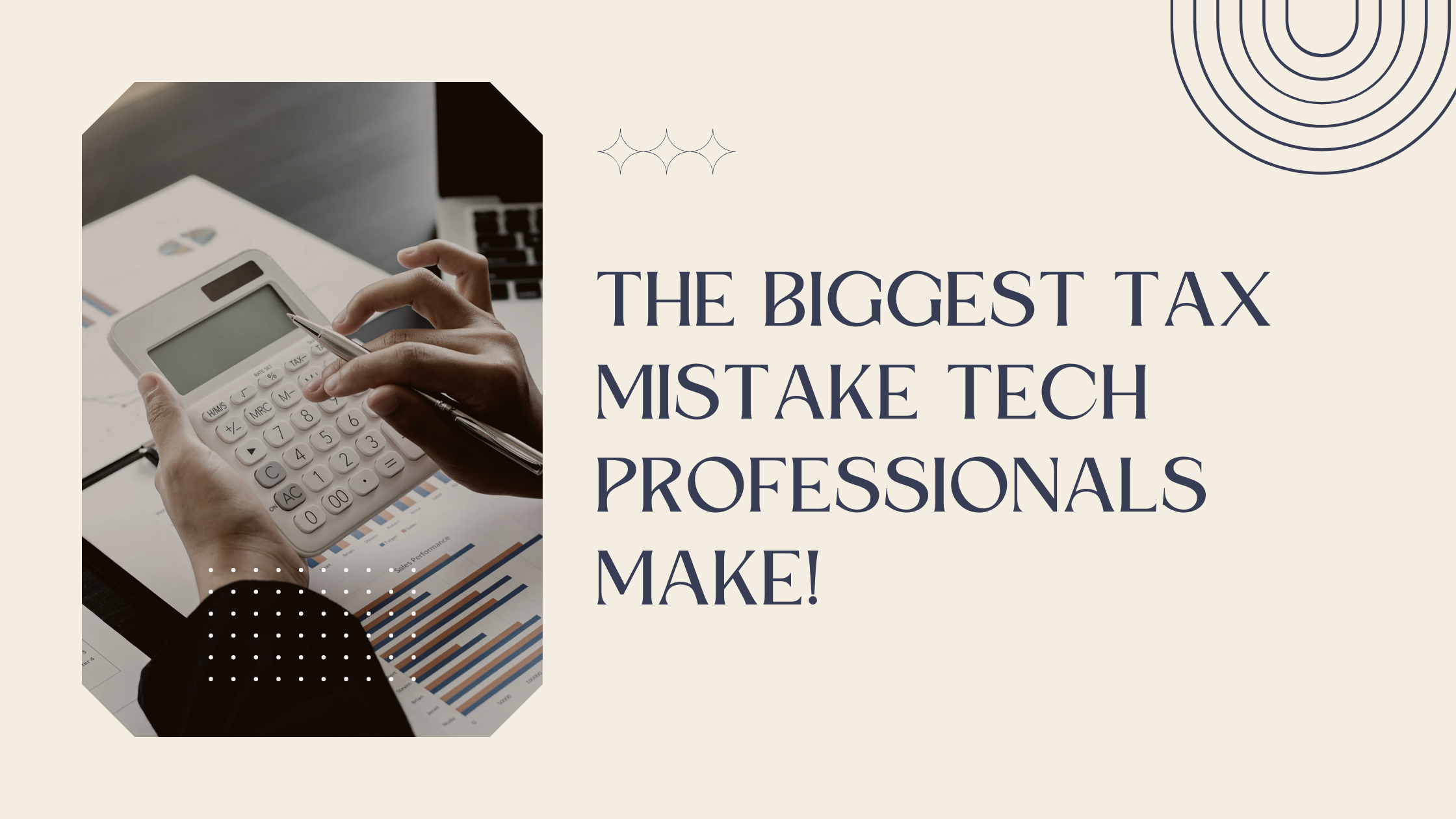How To Save Money By Avoiding Costly Tax Mistakes In 2025?
True Root Financial is a fee only financial advisor and financial planner based in San Francisco, CA. We serve clients across the globe.
Taxes can be complex, especially for tech professionals in San Francisco juggling high salaries, equity compensation, and a fast-paced lifestyle. A small mistake can cost you thousands of dollars, while strategic tax planning can help you maximize your savings.
If you are a tech professional interested in learning how we can help you claim your financial independence by investing wisely, minimizing taxes, and maximizing your equity compensation, please book a no obligation call here.
In this blog, we’ll explore practical steps to avoid common tax blunders. Let’s ensure 2025 is the year you keep more of what you earn. Watch our video, where we share a client’s story about how selling ISOs without a financial advisor led to unexpected tax consequences and how smarter planning could have saved more.
Key Takeaways:
- Plan for equity compensation, and holding periods to avoid higher taxes
- Pay at least 90% of taxes owed before deadlines to prevent penalties
- Maximize deductions and consult a financial advisor for a tax-efficient strategy.
1. Understand the Tax Impact of Your Equity Compensation
RSUs: Taxed when they vest as ordinary income. If you hold them, capital gains or losses apply when sold. Plan for withholding, especially if you’re in a higher tax bracket than the company’s minimum withholding rate.
Stock Options:
ISOs: Can trigger AMT if held; taxes depend on when you sell.
NSOs: Taxed as ordinary income when exercised, with any gains taxed as capital gains when sold.
Tax-Efficient Strategies:
- Sell RSUs or stock options in smaller amounts to avoid higher tax brackets.
- Hold shares for over a year to qualify for lower long-term capital gains rates.
- Use tax-loss harvesting to offset gains.
Example: Kevin, a product manager, sold $150,000 worth of RSUs in 2024 all at once, bumping his tax rate to 37%. In 2025, he sold smaller portions over multiple tax years, reducing his tax rate and saving $10,000.
2. Don’t Get Hit with Tax Penalties
Higher interest rates increased the penalty for underpaid income taxes to 8% in 2024, now at 7%, up from 3% in previous years. Equity compensation often creates additional taxable income, which may not be fully covered by standard tax withholding. This can lead to underpayment penalties.
How to Avoid Penalties?
- If RSUs or stock options push you into a higher tax bracket, increase your estimated tax payments or withholding to match your projected tax bill.
- To avoid penalties, Americans must pay at least 90% of what they owe before the April tax deadline, December 31 for those with withheld taxes, and January 15, 2025, for those paying estimated taxes quarterly.
- Pay at least 100% of your 2023 taxes (or 110% for higher earners) to avoid penalties, even if your 2025 income increases significantly.
3. Don’t Mistake Your Top Income-Tax Rate for Your Effective Rate
Inflation-Adjusted Tax Brackets for 2025
Source: Internal Revenue Service
Your marginal tax rate is the rate you pay on your last dollar of income, which is higher for higher earnings. However, your effective tax rate is the average rate you pay on all your income, which is usually lower than your marginal rate. For example, if you earn $240,000 as a married couple and pay $36,000 in taxes, your effective rate would be 15%, even if your marginal rate is 24%. The key is that not all your income is taxed at the same rate.
4. Tax-Smart Moves for Low-Income Years
- Exercise stock options: The lower your income, the less tax you owe on NSOs or ISOs. Therefore, having a well-planned exercise strategy can help minimize your tax burden.
- Convert RSUs or stock options to cash and reinvest in diversified assets while taking advantage of a lower tax bracket.
- Consider Roth conversions: Convert traditional IRA funds to a Roth IRA in a low-tax year to enjoy tax-free withdrawals in the future.
Example: Josh, a data scientist, took a six-month break in 2025. He used this time to exercise ISOs and convert $20,000 from a traditional IRA to a Roth IRA, saving thousands in taxes.
5. Avoid Backdoor Roth IRA Mistakes
Many high-income earners, like tech professionals, use backdoor Roth IRAs to get around income limits. While this strategy is smart, it can lead to complications if you have other pre-tax IRA funds. For example, if you have $100,000 in pre-tax funds in a traditional IRA and contribute $7,000 of after-tax money for a backdoor conversion, only a small portion may go to the Roth IRA. The rest could be taxed as a regular IRA withdrawal.
Backdoor Roths work best if you don’t have pre-tax funds in your IRA, as this minimizes tax complications.
6. Use Tax Deductions and Credits Strategically
Tech professionals often overlook valuable tax deductions and credits:
- Charitable Contributions: Donate appreciated stock to avoid paying capital gains taxes and claim a deduction.
- Contribute to Child Education: Contributing to a 529 plan can help reduce your taxable income, offering a smart way to save for your child’s education while avoiding potential tax blunders.
- Retirement Savings: Max out your 401(k), HSA, or IRA to reduce taxable income.
7. Don’t Make the Same Mistake Twice: Consult a Financial Advisor
Many tech professionals try to handle taxes alone, but equity compensation adds complexity that’s best managed with expert advice.
A financial advisor can help you:
- Plan your RSU sales to minimize taxes.
- Avoid AMT surprises when exercising ISOs.
- Create a comprehensive tax strategy tailored to your equity compensation and overall income.
Example: After facing a $20,000 tax bill on RSU vesting in 2024, Monica, a product designer, partnered with a financial advisor in 2025. Together, they created a plan to diversify her equity holdings and reduce her tax liability by $15,000.
Next Steps For You
Want to save more and stress less about taxes in 2025? Let’s craft a financial plan tailored to your goals. Schedule a call today!










Leave a Reply
Want to join the discussion?Feel free to contribute!